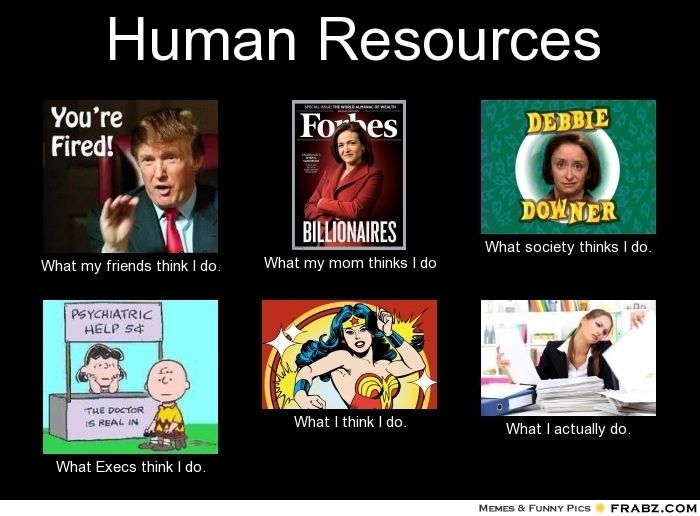So you just hire and fire people, right?
Yes and no. We do much more in between.
 HR Specialists can be responsible for:
HR Specialists can be responsible for:
communication & connection to the mission
employee engagement, team morale & motivation
workplace design & wellness
hiring & onboarding
growth & development
customer experience
HR specialists act as an important link between the organization and the employee. Although they are trained in all areas of human resources, they tend to specialize in one.
So What Do They Actually Do?
Depending on their area, they may:
phone candidates, schedule and conduct interviews
organize and host new employee orientation
develop training materials and deliver training sessions
guide employees through HR procedures
administer compensation and benefits
sometimes fire employees

How much will I be paid?
This will depend on where you live and the organizations you work for.
 Photo by Miguel Teirlinck on Unsplash
Photo by Miguel Teirlinck on UnsplashCanada
Median wage is $36 per hour and average salary is $74,880 (CAD).
Did you know?
Where Do Human Resources Specialists Work?
 HR professionals can be found in any organization. The largest employers are:
HR professionals can be found in any organization. The largest employers are:
Employment services - 15%
Professional, scientific, and technical services - 13%
Government - 11%
Healthcare and social assistance - 11%
Manufacturing - 8%
How Can I Get Into HR?

Usually, you need a university degree or a college diploma in human resources management or a related field.
Canada
It's highly recommended to get the Certified Human Resources Professional (CHRP) designation.
USA
Many associations exist to enhance skills of members and are offering certification programs. E.g. Society for Human Resource Management (SHRM) and HR Certification Institute.
Quiz
Sally wants to get into HR. What courses should she take?
Subscribe for more quick bites of learning delivered to your inbox.
Unsubscribe anytime. No spam. 🙂
Skills
You will enjoy this role if you:
have great communication and interpersonal skills
can think critically and have good analytical abilities
love to solve problems

Did you know?
What If I Prefer To Work Alone?
You should probably consider something else.
Working in HR means that you deal with people in some capacity such as in recruitment or in an advising role.
If this sounds painful to you, you might want to look for a job that deals more with facts and numbers and less with people and their problems.
Take Action
Want to know more?
Take a look at the job outlook and other info on Job Bank (if you're in Canada) and U.S Bureau of Labor Statics (if in USA).
Research Human Resources programs near you.
Find others in the field via LinkedIn or through your network. Do informational interviews with them to learn more about the ins and outs of the role!

Your feedback matters to us.
This Byte helped me better understand the topic.


